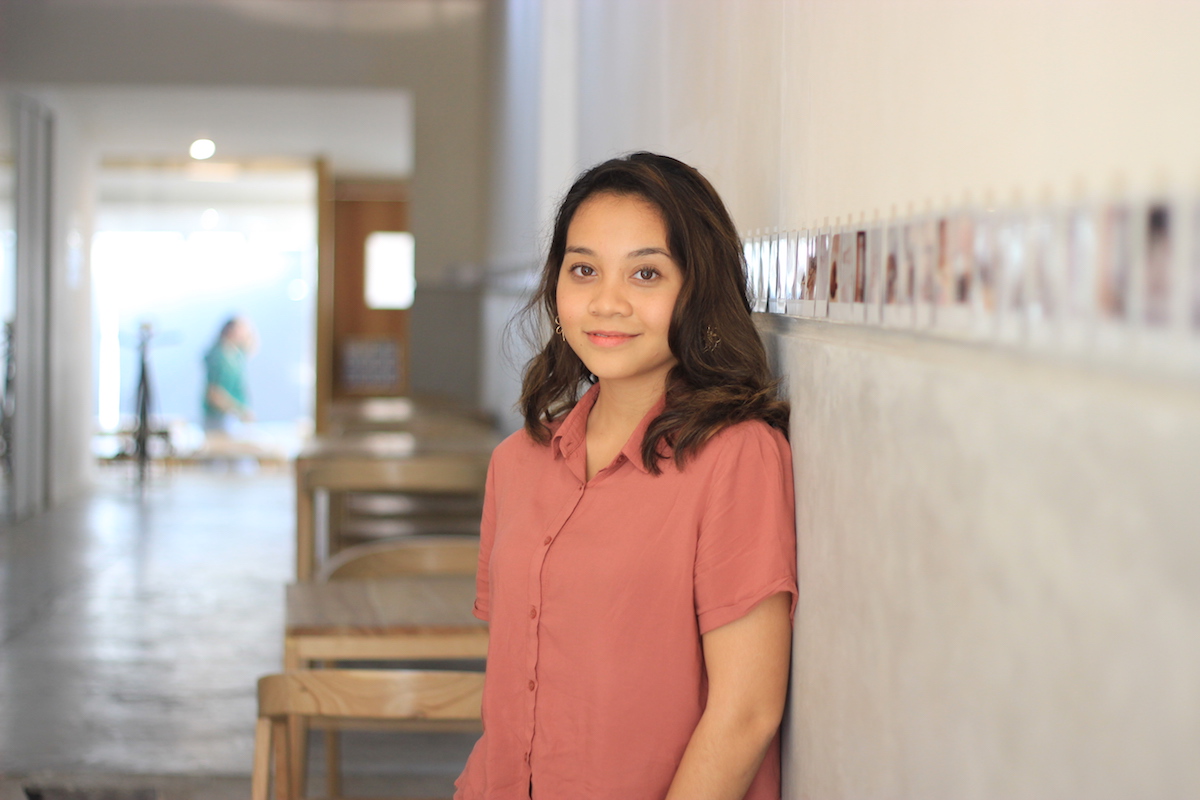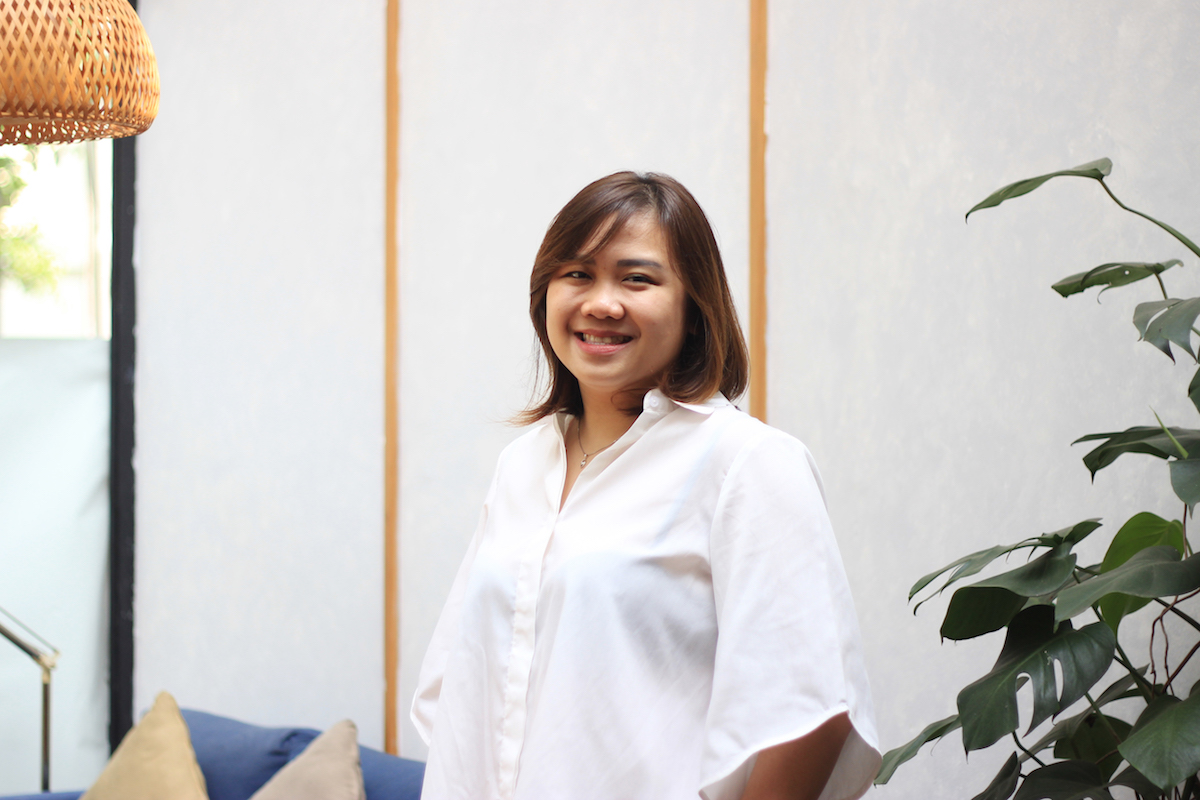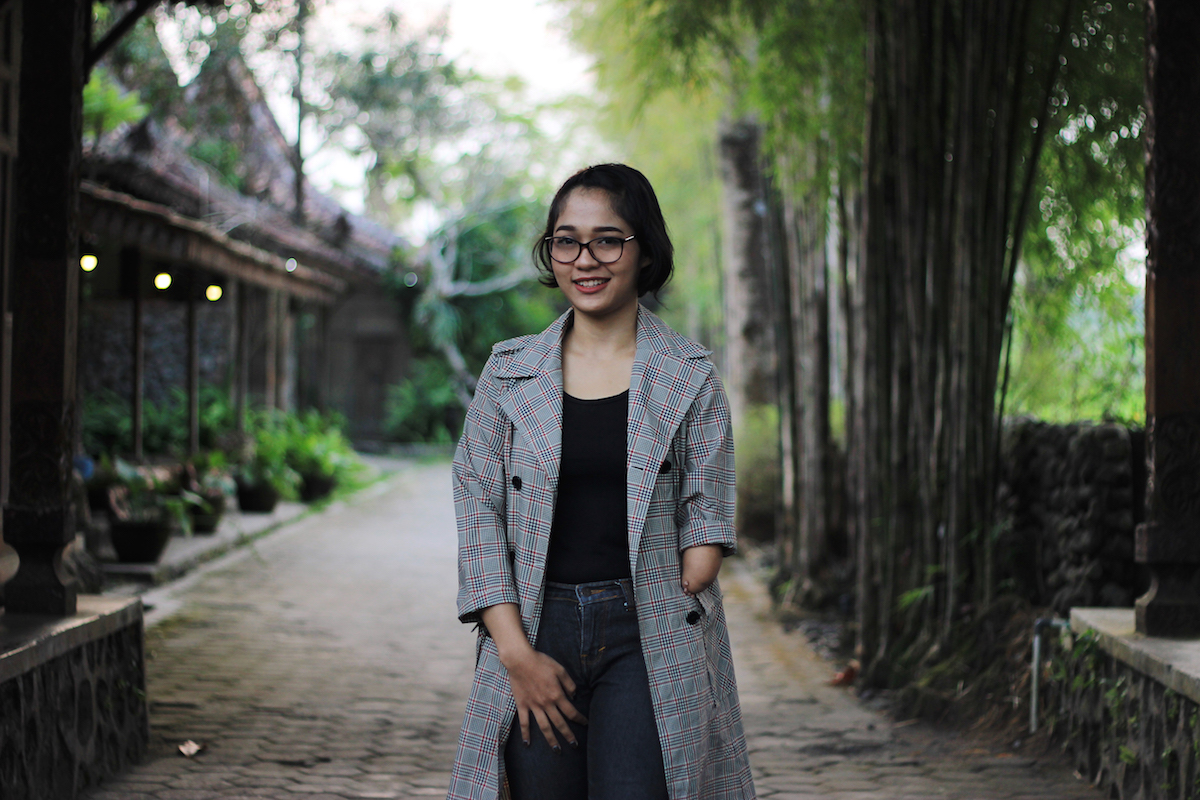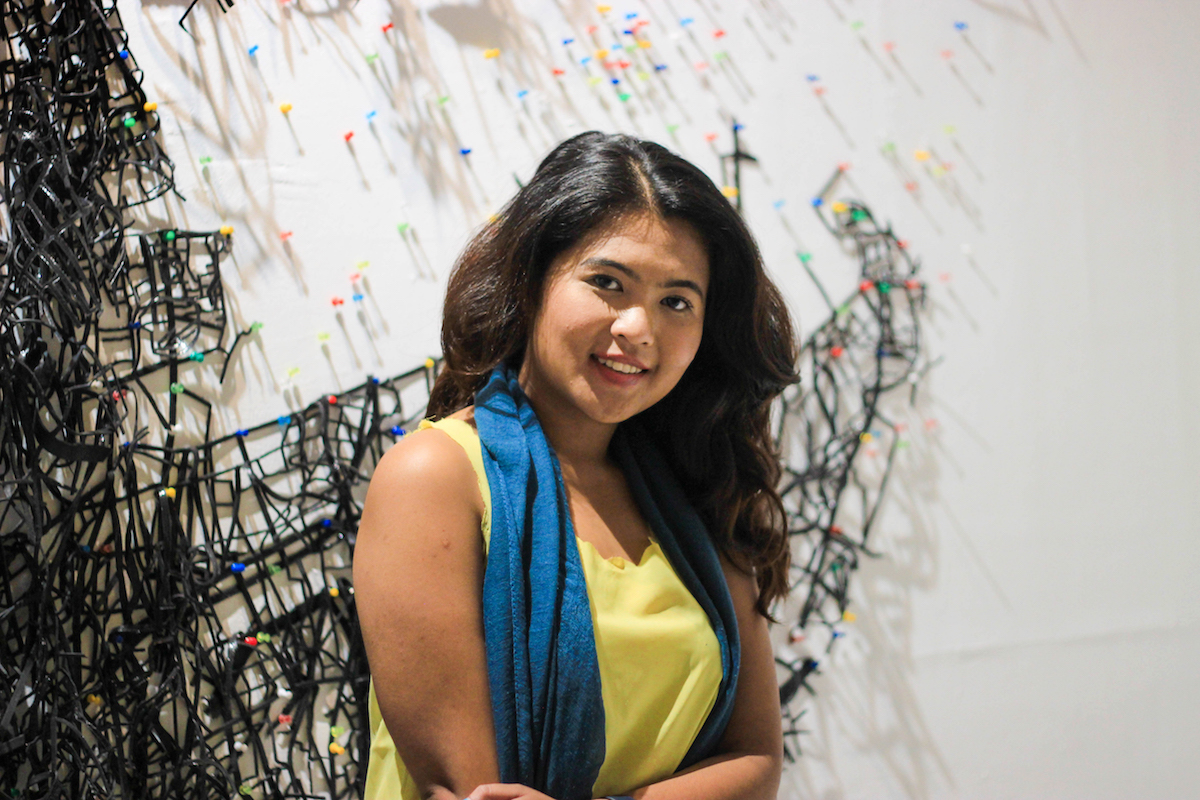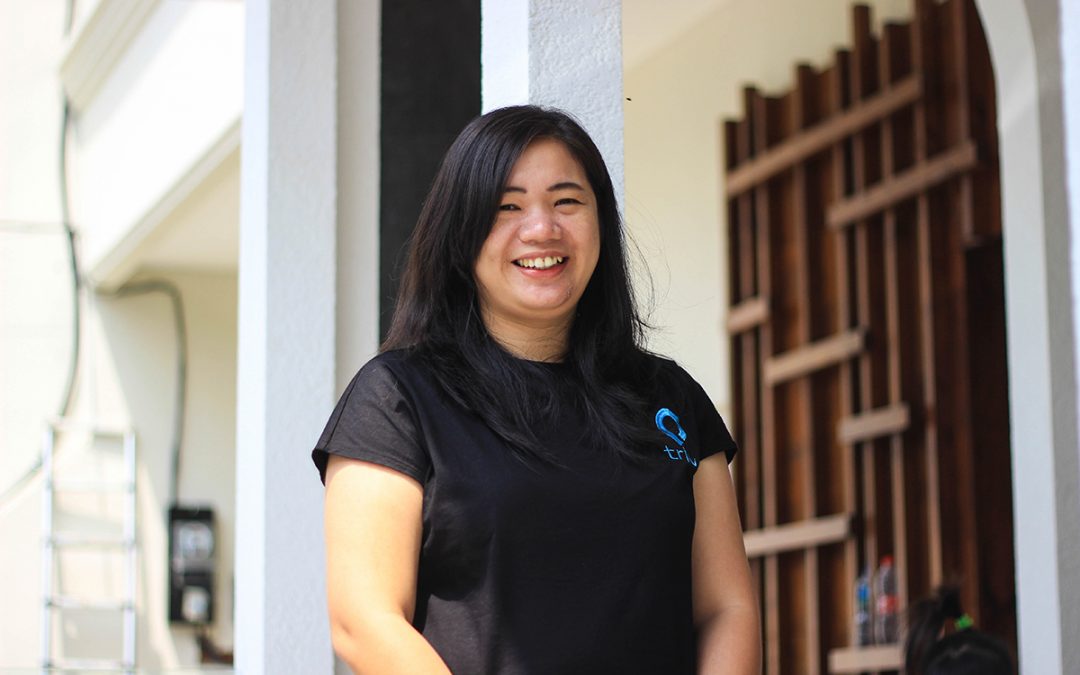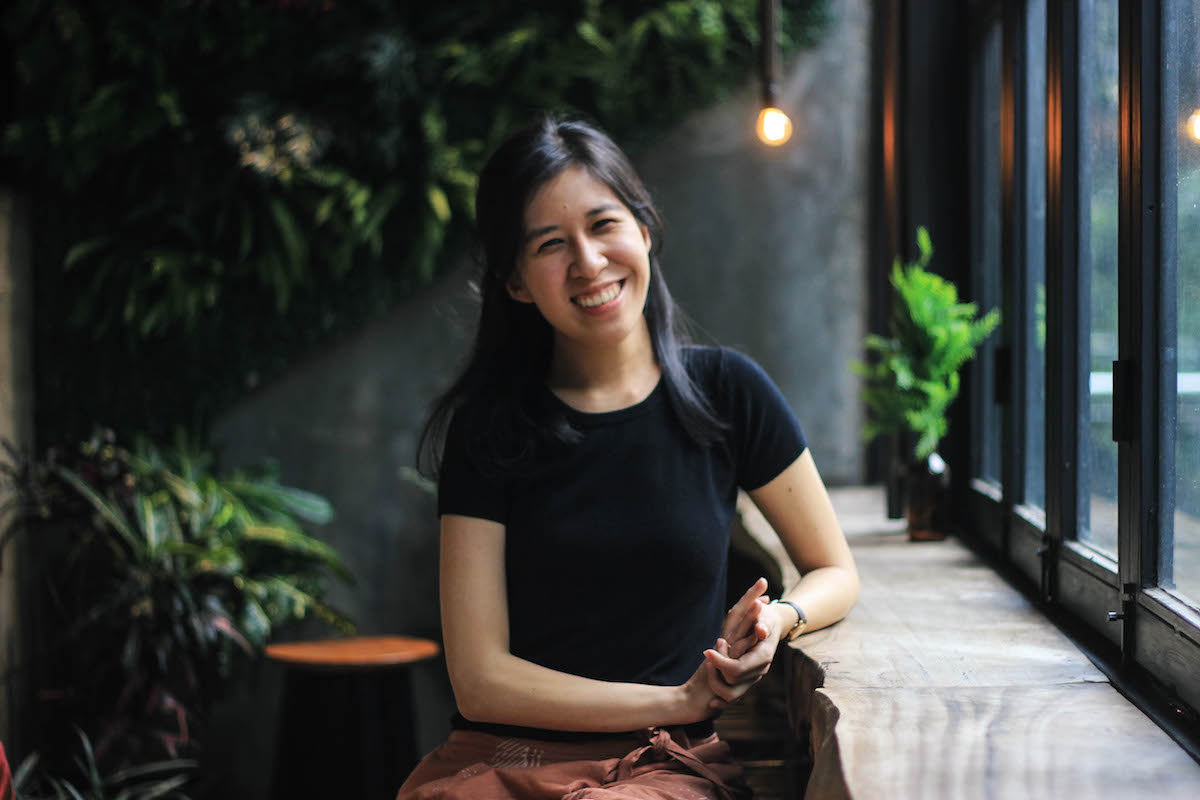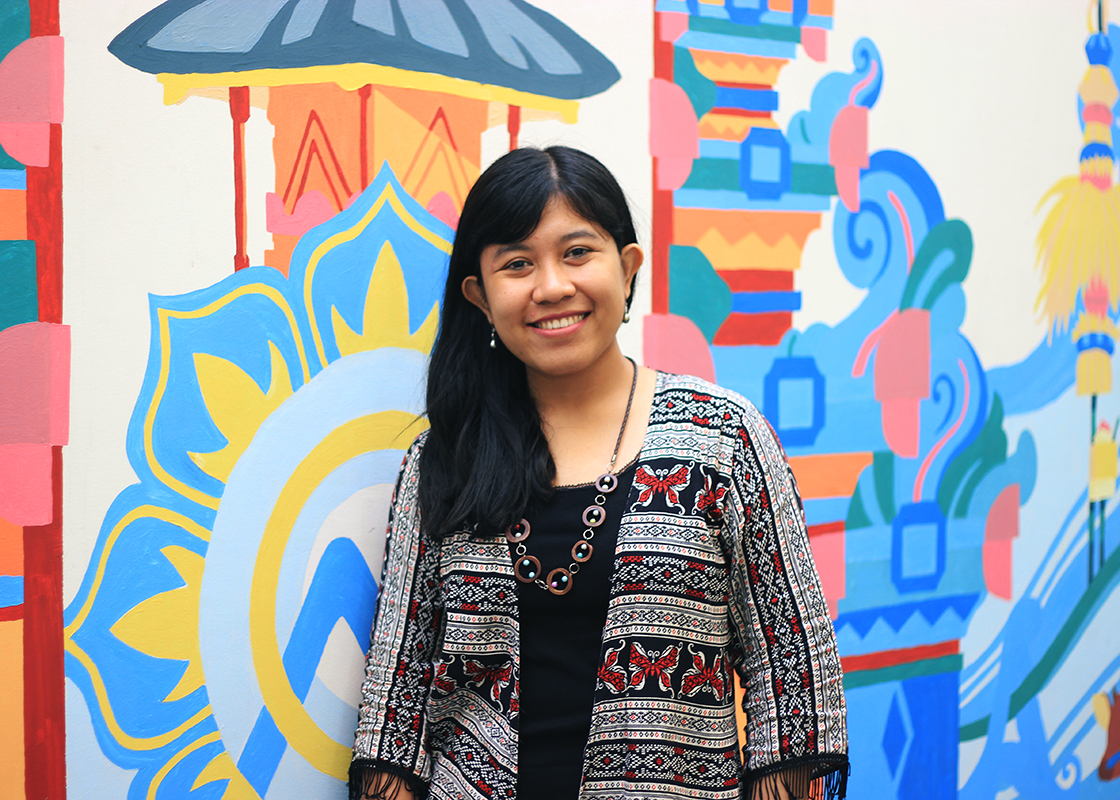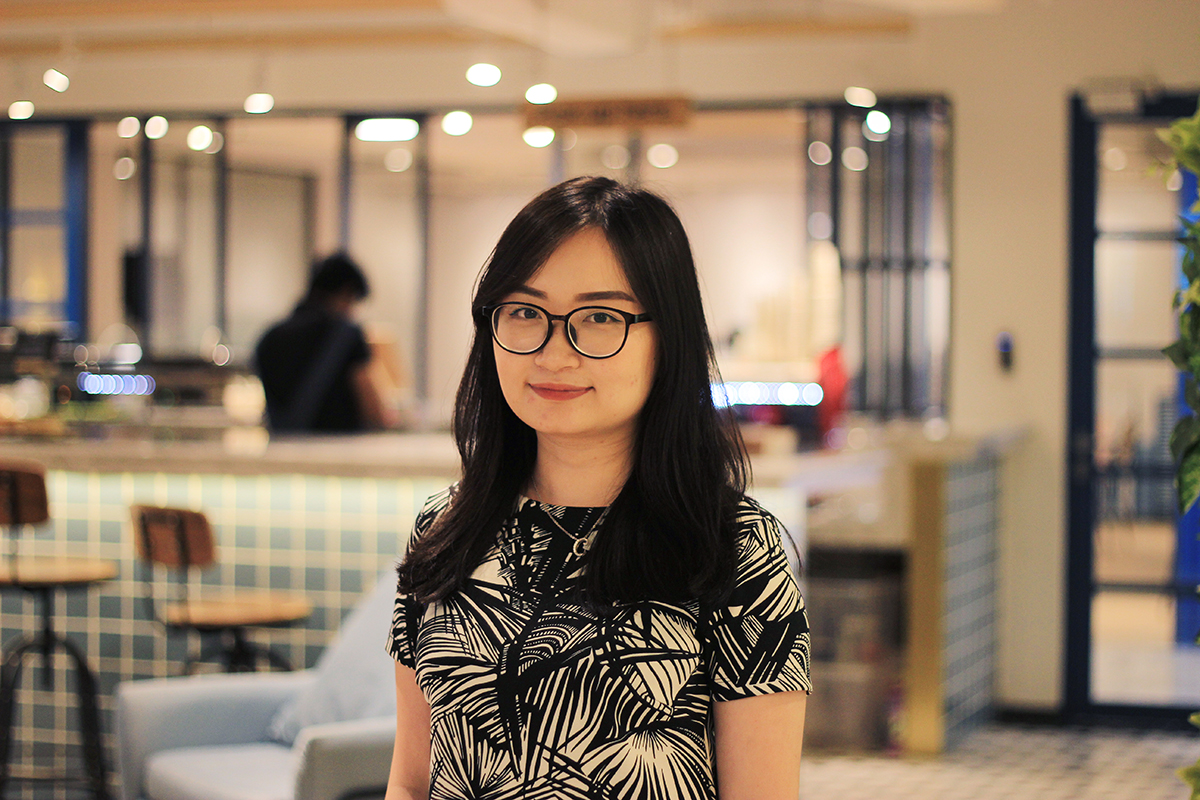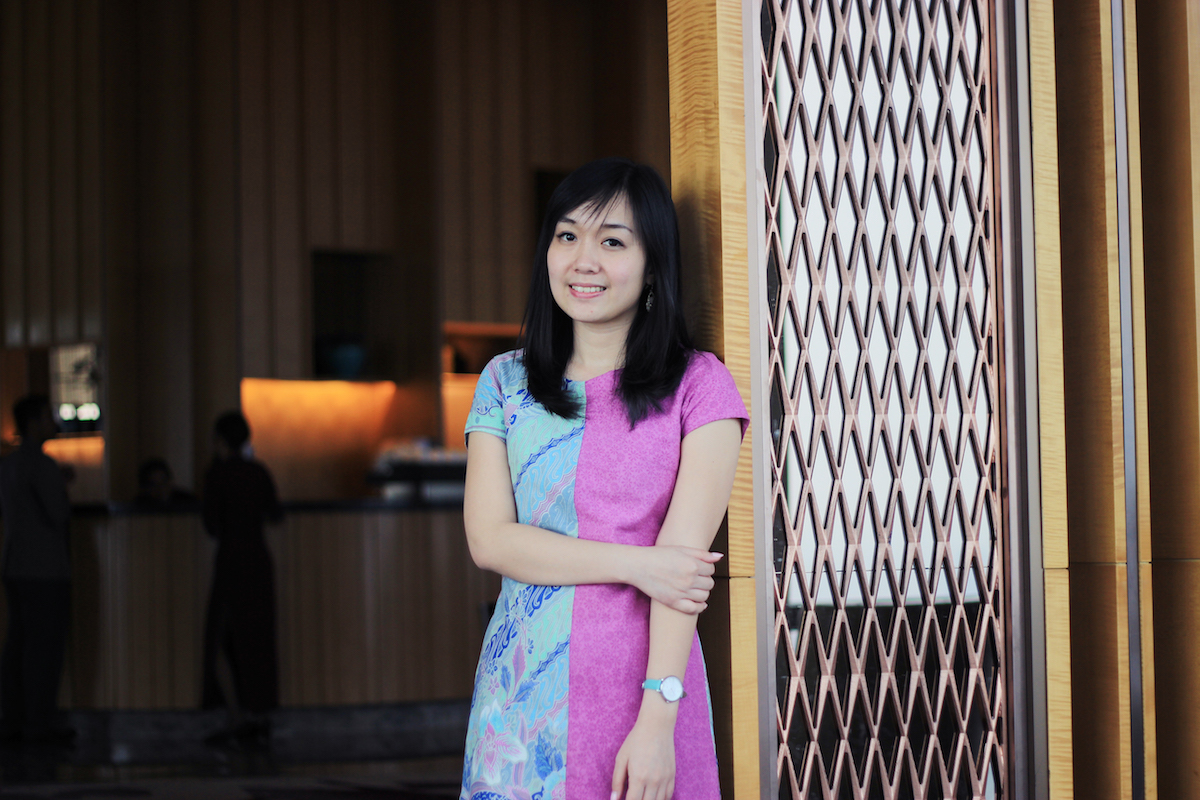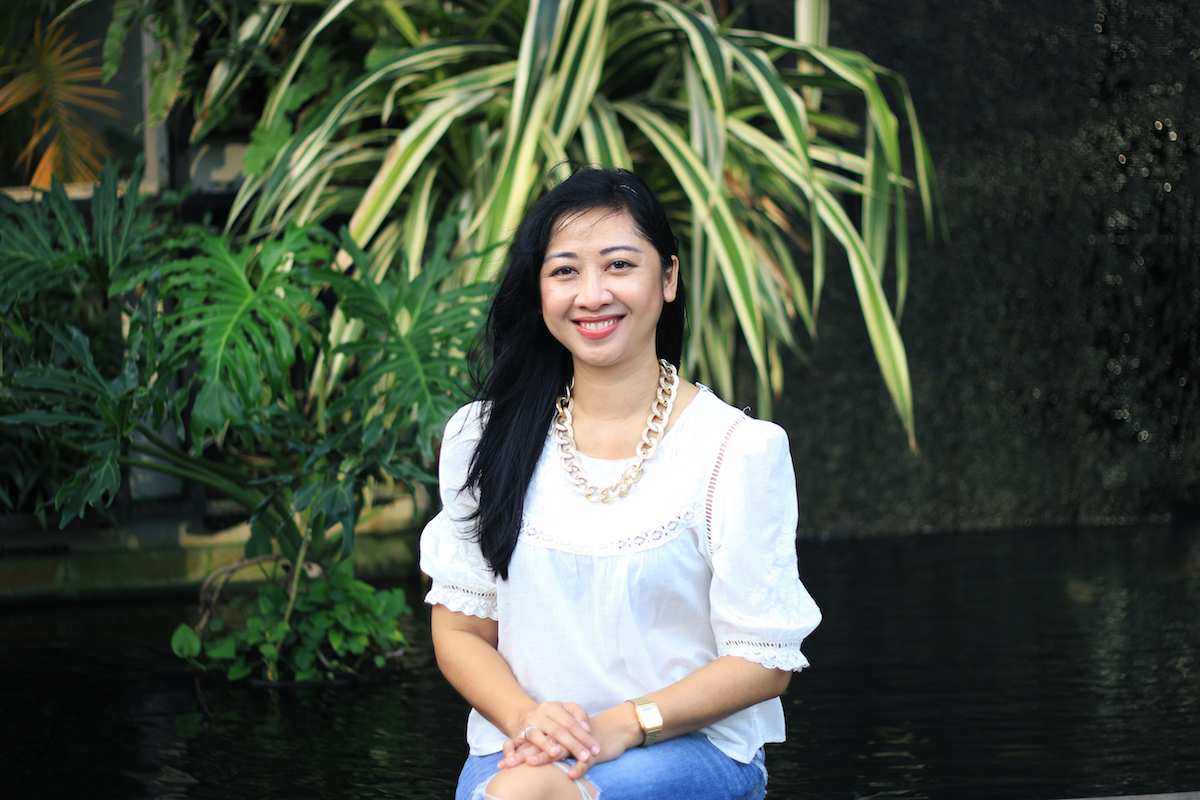Tell us a bit about yourself.
My name is Mila Alfitri and I am an engineer at GO-JEK. It’s a bit of a long story, but I originally wanted to go the fine arts route; I’ve always been passionate about art and I’ve actually studied a bit of oil painting back in my college years. But after taking those classes, I realized that I didn’t really like it to the point that I could make it into a career. So then I ventured into information systems which I studied for my bachelor’s. Afterwards, I learned a bit about web development which is basically computer science but for programming websites. I noticed that I liked the graphics of websites and how some websites are so beautiful and animated that I really wanted to learn how to create them. That’s how I actually mixed my artistic passion with technology: by learning web development. I did this on my own and on the side. I never really had formal training for it. It’s great to be here at GO-JEK where people actually want to teach me things and I can basically do what I’m passionate about.
I’m curious – how did you actually go about self-teaching yourself? What resources were available to you?
There was this one day when I was actually at the bookstore and I saw a really beautiful book about HTML and CSS. And I opened it and it was beautifully written. The graphics were really nice to follow through. I bought it and just learned through it step by step. So that’s how I learned. Learning online was relatively easy as well. I don’t think you necessarily have to be a computer science major to actually be in this field. Lots of internet courses are out there. I didn’t really have mentors; maybe some people mentored me on tips and tricks. But the fire was lit up from within. You know, from your own passion and from your own willingness to learn as well.
You’re also at GO-JEK, one of the biggest tech companies in Indonesia. An issue that we do notice around the world is that there are not so many women in large tech companies. Can you comment on how female representation is in your eyes?
One of the biggest challenges is to get girls to be interested in the field of technology – at least in this part of the world. But at GO-JEK we try to diversify our employees and engineers. We have a lot of these courses.
Personally, I am working on a project called Generation Girl with my colleagues Nadine and Crystal, as well as other folks from outside GO-JEK such as Janice, Josephine, and Fadri. This is one of the ways we can actually empower girls to pursue technology. Because most of the time girls don’t know what exactly a software engineer does. And you know, just getting them to the right confidence level by telling them they can do this besides becoming doctors, business people, accountants, etc.
This project is basically a community for introducing technology to young girls from ages 12 to 16. We do this by creating tech bootcamps, teaching them how to do mobile development, web development and other STEM projects that we have in mind. Our Winter Club is one week long (December 17-21), and our Summer Club is an 8-week long program. It will be taught by high school and university students who have prior computer science experience.
Why is this kind of project needed? What’s the reason behind starting it?
You know whenever I go to meetups, or at my previous company, I don’t see a lot of girls. It’s kind of bothersome. It’s not that the company doesn’t want to hire girls, either. It’s simply because we can’t get girls interested in this field. One compelling reason why we want to get girls interested is because they don’t realize that this is actually one of those fields that allows you to balance between being a mother at home and having a career. If you have a family, you have obligations later on. By gaining web development skills, you don’t have to drop your career just because you have to take care of your family at home. You can work remotely. And I noticed that a lot of software companies allow this. It’s basically a win-win for everyone. I’ve seen a lot of women that had to drop their career because they did not have this privilege. And I think that’s unfortunate because you can do both. Girls can do both.
Do you see any other trends in the technology industry trying to empower girls as well?
Yeah, definitely. If you’re talking globally, in the States I was part of a Women who Code chapter for my city, Portland, Oregon. That was really good – I’m actually trying to form a chapter here in Indonesia as well. But that’s still in progress. There are other communities as well. But I don’t know if they’re doing boot camps as well so we’re probably the first girl empowered organization that organizes bootcamps just for girls.
What intrinsically motivates you to take action on this issue?
I think what really moved me were very relatable life encounters with my family. There were a lot of times when we had family gatherings where someone asked, “So how’s your job?” and then someone would reply, “Oh, I resigned because I just had another baby.” So I’d be like,”What? You shouldn’t!” I mean, you can take maternity leave, but then they’ll have these excuses. I feel like a lot of these excuses are because there is a hindrance. I know there’s some sort of hindrance. Something, I don’t know what.
I read a lot of books on women’s empowerment as well. A lot of the time, girls just don’t have sufficient education or good mentors. In some parts of the world, it’s not even discussed that girls have to go to school. There are a lot of inspirational people as well, like Malala. I read her book, I cried. She’s really inspirational and I think she’s probably one of my role models.
Have you ever felt any challenges in work or in life because you’re a woman?
Thankfully, no. I think so far I’m blessed enough to not have to encounter that kind of situation. Actually, it’s on the contrary, you know. Most of the time when I’m around guys in a predominantly-male work environment, they tend to be more supportive. They’re like, “You should be in this project,” or like,”You should be in this role.” It’s never like, “You’re a girl, you’re not meant to do this.” I’ve never encountered that, thankfully. Hopefully not ever. I think so far people have been really open-minded, especially in this startup scene.
How about challenges in the startup scene?
Since I’ve worked in both corporations and startups, I think one big difference is that startups are just so fast-paced. You don’t really have a breather in terms of developing yourself. But I think if you really want to grow in your 20s, it’s also good to be in a startup. If you compare three years at a corporation versus one year at a startup, you learn so much faster at the startup. I also noticed that in startups, instead of taking on one role, you’re expected to take on multiple roles. Sometimes it works for some people and sometimes it doesn’t.
How do you intrinsically motivate yourself when you’re feeling challenged or stressed? When people doubt you?
I just brush it off. The only person that can say that you can’t do something is someone who knows your capability, and that person is yourself. I think there is one encounter that I’ve had in my life in which some people didn’t believe in me. It’s not worth your time to actually think about that. I think it’s more worth your time to actually prove them wrong. By developing yourself and reaching out to people to learn more, and taking that extra weekend off just to work a little bit more. It doesn’t have to be office-related. It can be personal projects. Like Generation Girl for me. It’s outside of work, but it’s definitely giving me a lot of experiences and technical skills.
If you could give your younger self a piece of advice, what would it be?
Just be yourself. Do whatever you need to do to actually improve yourself day-by-day. I think I would just tell myself that it’s OK to do things that I want to do. It doesn’t matter where the journey starts off. What matters is the process of getting there.
You mentioned before that you had a background in fine arts. Do you find yourself drawing from that same passion and creativity in your everyday work? If so, how?
I’m actually going to paint after work tonight. After being in technology, it’s not like I grew disinterested from my true hobby, which is painting and drawing. I try to do it every now and then, even after work to de-stress. I think developing websites is kind of like making art as well, because you do deal with graphics and with sizes and how to make it work on different operating systems. So it’s related as well.
What is one piece of advice you would give to girls all over the world?
Just be your true self. If you don’t like things the way they are now, make an effort to change it. And just know that if you do things in a way you’re passionate about, it will go great, it will go bigger. Things won’t go big if you’re half-hearted on something. So if you’re half-hearted on something right now, just switch and do what you love.
